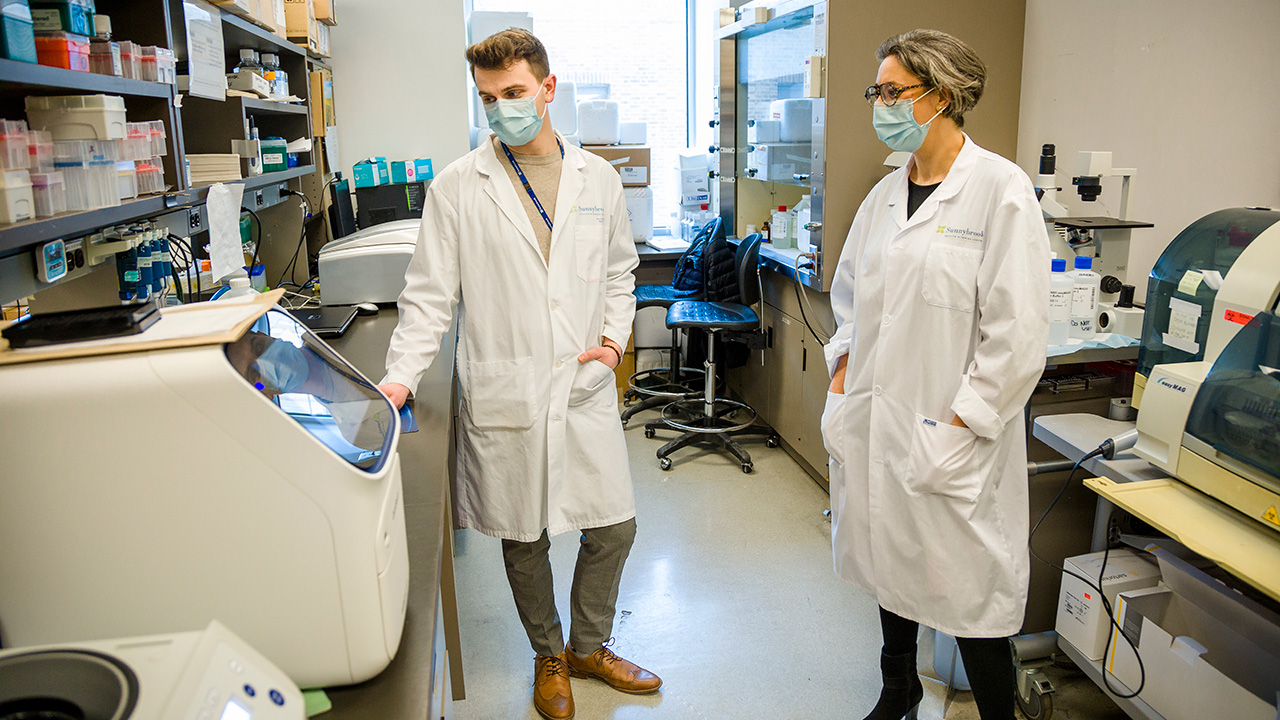Researchers discover new highly mutated variant of SARS-CoV-2
In a new study published today in Nature Microbiology, Dr. Samira Mubareka, senior scientist and infectious diseases physician at Sunnybrook, and colleagues identified a new and highly divergent variant of SARS-CoV-2, in Ontario white-tailed deer, and the first evidence of deer-to-human transmission.
The research is part of Dr. Mubareka’s ongoing work as part of a national research collaboration, established in 2020 to detect and characterize SARS-CoV-2, the virus that causes COVID-19, activity in wildlife. The working group is led by government and academic scientists, alongside collaborators at leading provincial and federal government agencies.
The new reported variant is a descendent of an older B.1 virus and has 76 mutations compared to the ancestral SARS-CoV-2 strain. In comparison, the Alpha, Beta and Delta variants had between 24 and 31 mutations while the currently dominant Omicron BA.5 variant has 105 mutations.
The researchers compared the genetic sequence of this new variant to sequences from humans who had tested positive for SARS-CoV-2 in Ontario around that time. They identified one sequence that closely matched the variant from white-tailed deer, suggesting that the virus has spilled back into humans at least once.
“Usually when you find a new virus that has spread between species, you want to understand how hazardous it is,” says Dr. Mubareka, who is also a member of the Emerging and Pandemic Infections Consortium (EPIC), a collaborative initiative among the University of Toronto and five affiliated academic hospitals. “Our follow-up work is going to focus on what this virus does in human and animal cells and how it transmits.”






